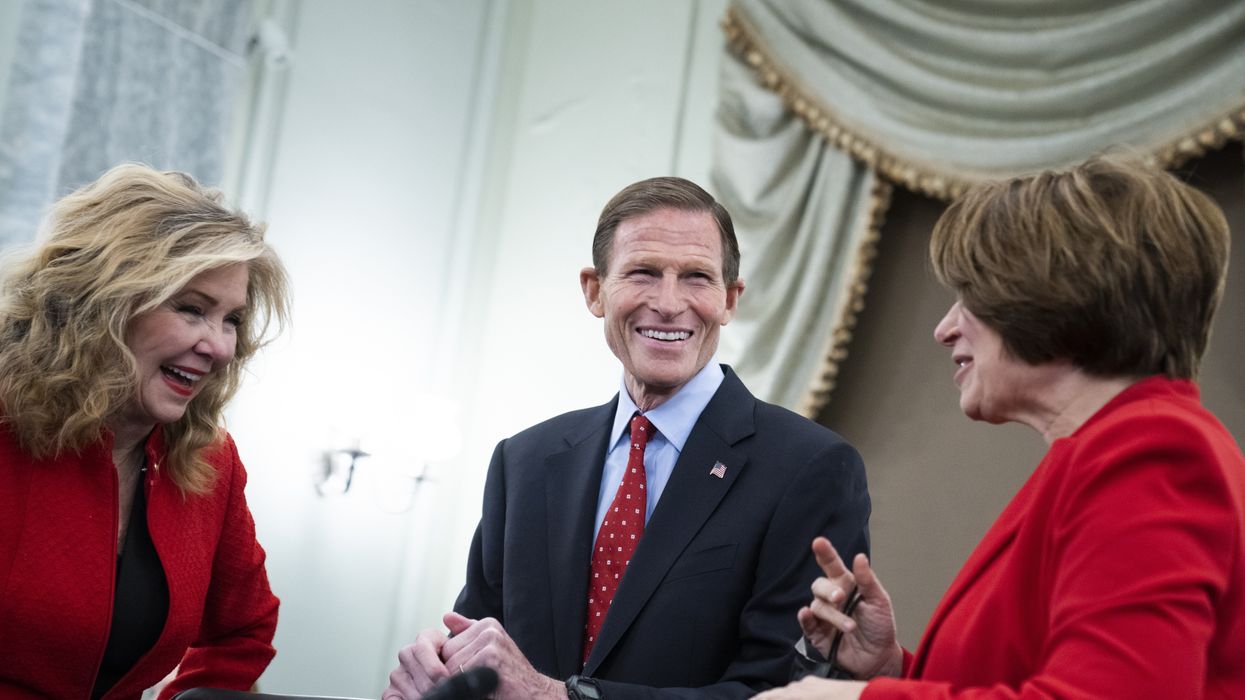Hatch is board chair at Issue One, a cross-partisan political reform organization.
Fifty years ago, my father served as the Republican minority leader in the deep-blue Massachusetts House of Representatives. But during his time in office, he managed to create jobs, protect reproductive rights and author a landmark environmental bill that protects Massachusetts wetlands to this day. (Did I mention he was Republican?)
That solutions-minded approach was my introduction to politics. Legislators prioritized governing: They looked out for problems, listened to constituents and worked together to write effective policies, even on contentious issues — and often with a good dose of humor.
If you’re imagining the scene I just described as a black-and-white film, I don’t blame you. But over the past two years, Congress has acted it out with the Kids Online Safety Act. It’s a strong bill designed to protect our kids. And as the chair of Issue One, a nonprofit that seeks to strengthen our democracy, it’s been heartening to see such an important bill shaped by the very best of our democratic traditions: deliberation, compromise and bipartisanship. Now, it’s time for legislators to pass it.
Creating sound laws about anything is complicated, but reining in Big Tech is a particular challenge, and not just because of the enormous amount of money the industry is spending on lobbying. New technologies pop up constantly, forcing legislators to balance free speech concerns with public safety. However, the authors of KOSA are doing the work for the nine out of 10 voters who want Congress to regulate social media and wrote a bill that was thoughtful from the start.
First, a little history: In late 2021, the Wall Street Journal published an investigation called “ The Facebook Files,” which revealed that Facebook understood the harms — including cyberbullying, eating disorders and even suicide — that its platforms inflict on teenage girls. In response, Sen. Richard Blumenthal (Conn.) and Marsha Blackburn (Tenn.), a Democrat and Republican, held a series of hearings to investigate how Congress could reasonably update America’s outdated and flawed policies to protect kids online. KOSA came out of that effort thanks to a bipartisan approach that encouraged checks and balances.
While drafting, Democrats wanted to hold companies accountable, but Republicans pushed to prevent the bill from becoming a “ litigation magnet.” And Republicans wanted kids to see age-appropriate content, but Democrats sought to ensure they’d have access to community groups and information about mental and physical health.
This push and pull resulted in a common-sense bill that, in its current form, requires tech companies to design algorithms that don’t promote eating disorders, sexual exploitation, suicidal behavior or illegal substances to children. It also requires they limit addictive features for young users, set the strongest privacy settings by default, make it easy to submit concerns and delete data, create parental controls to monitor privacy settings, and provide annual reports.
But good policy doesn’t just come from listening to voters and the other party. It also comes from advocates and issue experts. Issue One believes reforming social media is a crucial step towards healthier kids, better-informed voters and a vibrant democracy. Our Council for Responsible Social Media has brought together bipartisan policymakers with experts, parents and each other to figure out how to shape KOSA. Other nonprofit groups have added their expertise to turn the bill into what it is today.
And most importantly, for those who care about free speech, the bill does not force information to be removed from platforms. Rather, KOSA is a bill about regulating addictive, manipulative algorithms — not one that puts a wall between our kids or our citizens and the world.
We have our robust democratic system — from citizens to legislators to advocates — to thank for that. Our federal government is stepping in exactly when it should: When the problem is too complicated for states to manage alone and when there are models to look towards, like the European Union’s and United Kingdom’s similar laws. And it’s stepping in exactly how it should — with input from all sides.
With almost 70 co-sponsors in the Senate, and a bipartisan group of members introducing their own version in the House, there’s nothing left to do with KOSA but pass it. There’s support from both sides of the aisle because, in the words of Sen. Ted Cruz (R-Texas), “It is a serious and meaningful step forward.” And as Sen. Dick Durbin (D-Ill.) said of the mothers who have been advocating for KOSA, “They’re counting on us to do something … we have to bring this to a vote.”
In the spirit of a bygone minority leader from Massachusetts, pass KOSA with purpose, with compromise and with a dedication to helping the American people. Exactly as our democracy is meant to work.




















Trump & Hegseth gave Mark Kelly a huge 2028 gift